Andrew Ridgeley on George Michael's favorite subject (sex) and their group's end: 'Wham! couldn't age'
- Oops!Something went wrong.Please try again later.
- Oops!Something went wrong.Please try again later.
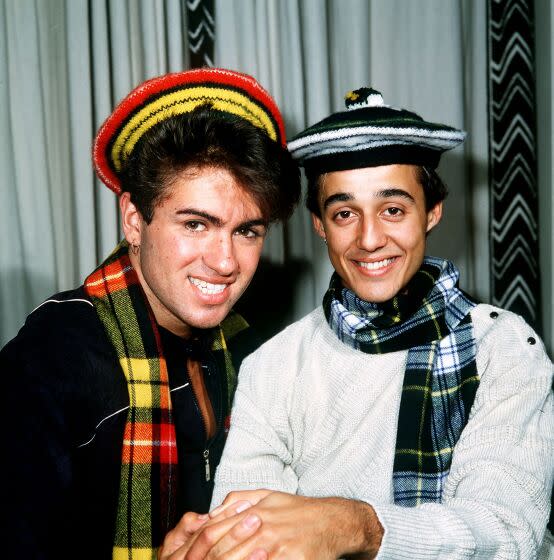
Maybe the human brain is wired to think in terms of binaries: male or female, on or off, win or lose. It’s certainly true of big pop duos, where one partner is always seen as more important (Paul Simon, Daryl Hall) and the other is dismissed as parsley on a plate (Art Garfunkel, John Oates).
It's the same with Wham!, the British duo who took huge hooks and tiny shorts to the top of the charts from 1982 until their breakup in 1986. George Michael was the Paul Simon of the group, while Andrew Ridgeley was his plus-one, despite having co-written Wham! hits including the wildly anti-capitalist “Wham Rap! (Enjoy What You Do),” the wildly consumerist “Club Tropicana” and the ageless “Careless Whisper.”
“Ridgeley is little more than a pretty face,” one newspaper columnist wrote in 1986, “while Michael supplies the songs, vocals and production skills.” The Ridgeley mockery persisted even after Wham! split: A 2012 headline in a British tabloid article read, “Loser Who Had the Last Laugh.”
Ridgeley, 60, laughs often during a video interview from his sunny living room in London. In the new Netflix documentary “Wham!,” Michael (who died in 2016) describes Ridgeley not only as the driving force behind Wham!’s ascent, but also his beau idéal of how a pop star should look and act. “Almost everything came from Andrew,” Michael says in “Wham!” He also makes it clear how much he struggled in the ‘80s by not coming out as gay: “Oh my god, I’m a massive star and I’m gay, and the depression was about that.”
Read more: George Michael spent his career singing about freedom. But he never quite found it
On his first day at a new school in a London suburb, Michael (still going by Georgios Panayiotou, his birth name) met Andrew Ridgeley, the class cut-up. They were 11 and 12, respectively when Ridgeley gave his Greek pal the nickname Yog. In his 2019 memoir “Wham! George & Me,” Ridgeley recalled pre-fame Michael as “broccoli-haired … with a muffin-top waistline and a wardrobe full of questionable outfits.”
Wham! released only two albums but scored six No. 1 hits in the U.K and seven consecutive Top 10 singles in the U.S., including its breakthrough No. 1 in England and America, “Wake Me Up Before You Go-Go.” They became notorious for wearing skimpy clothes in colors usually reserved for Miami Beach hotels. Pop music in the ‘80s normalized excess, but Wham! were irrepressible on the level of a Busby Berkeley musical.
After they broke up, Michael went on to global stardom, while Ridgeley raced cars and released an unloved solo album, “Son of Albert,” a Def Leppard/Power Station hybrid, in 1990. Then he mostly retired to the countryside, where he continued to be friends with Michael.
The new documentary “Wham!,” directed by Chris Smith, premieres on Netflix July 5, and is followed two days later by a new Sony compilation, “Wham! The Singles: Echoes From the Edge of Heaven.” If the film helps people think of Ridgeley as less of a second banana, he certainly won’t mind, though either way, he’ll have the last laugh.
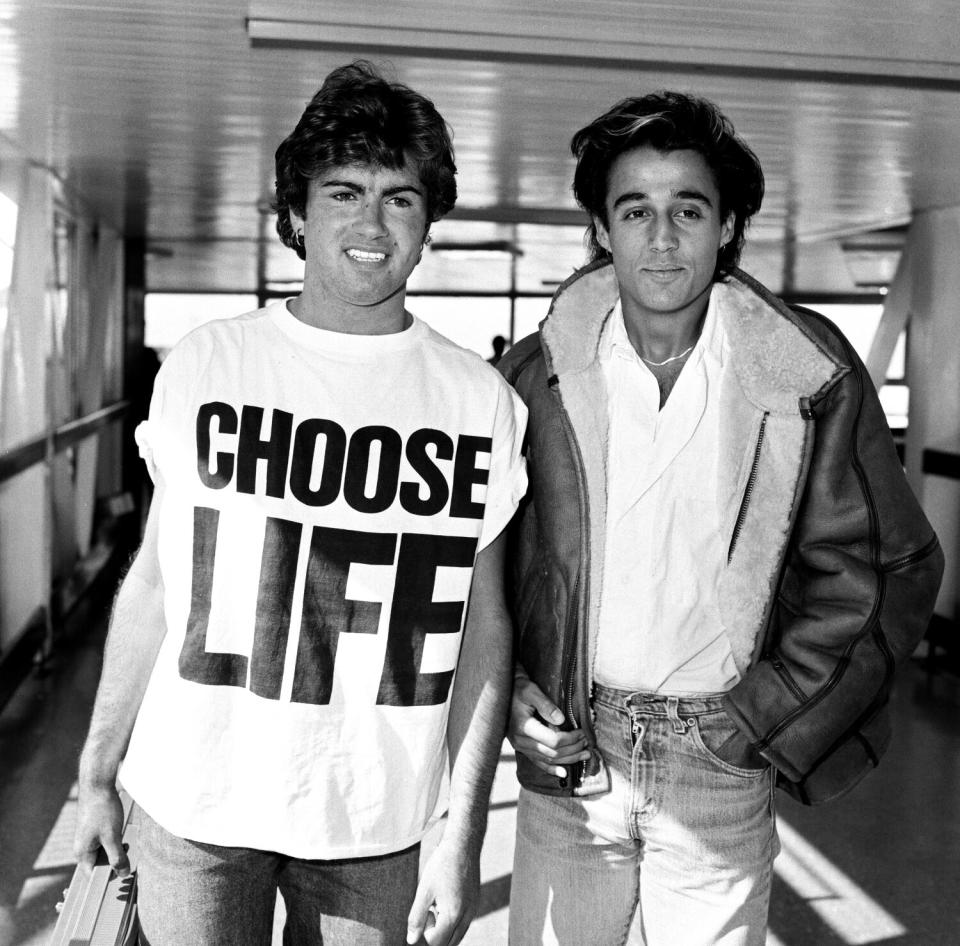
“Freedom Uncut,” a documentary George Michael made with his friend David Austin, came out only a year ago. What does “Wham!” have that isn’t covered in George’s movie?
Ridgeley: I haven’t seen “Freedom Uncut,” so I’m hazarding a guess here, but I’m going to say Wham! [laughs]
There’s a good amount of Wham! in “Freedom Uncut.”
Well, this is a rather more in-depth exploration. I wanted to illustrate the context and global scale of a phenomenon to the digital generation, those kids who come to Wham! via TikTok, Instagram or their mum and dad’s record collection. When my memoir was published, I did a book tour and met kids of all ages, from 5-year-old girls to a young chap who got a first in economics from the London School of Economics by writing a dissertation about Wham! performing in China. It brought me face to face with the enduring nature of our legacy, for the first time in a long time, because I’d been out of the industry.
Where do the film's voiceover interviews come from?
George’s are compiled from interviews he conducted over the course of his career, largely with Mark Goodyear, a British radio DJ, for a BBC special 15 or 20 years ago. Mine were conducted with Chris Smith over the course of the documentary.
In one voiceover, George says, “Andrew was this idol that I had.” Did you know he’d idolized you?
Not in so many words, but Yog never made it a secret of how he perceived my part in our friendship and how it related to his evolution as a young man. I had a rather more acute, advanced sense of style and aesthetics than he did. You’ve seen the documentary, so you know he was a fairly unprepossessing-looking young chap. He was unremarkable and then at the Final [Wham!’s farewell concert] in 1986, he's remarkable and incredibly good-looking. That was the transformation.
I interviewed George years ago, and he said, “People have no comprehension of what I looked like as a kid. I was such an ugly little bastard.” Is that accurate?
[laughs] Yeah, he didn’t beat about the bush in his descriptions. He certainly wasn’t good-looking as a kid, but he wasn’t ugly.
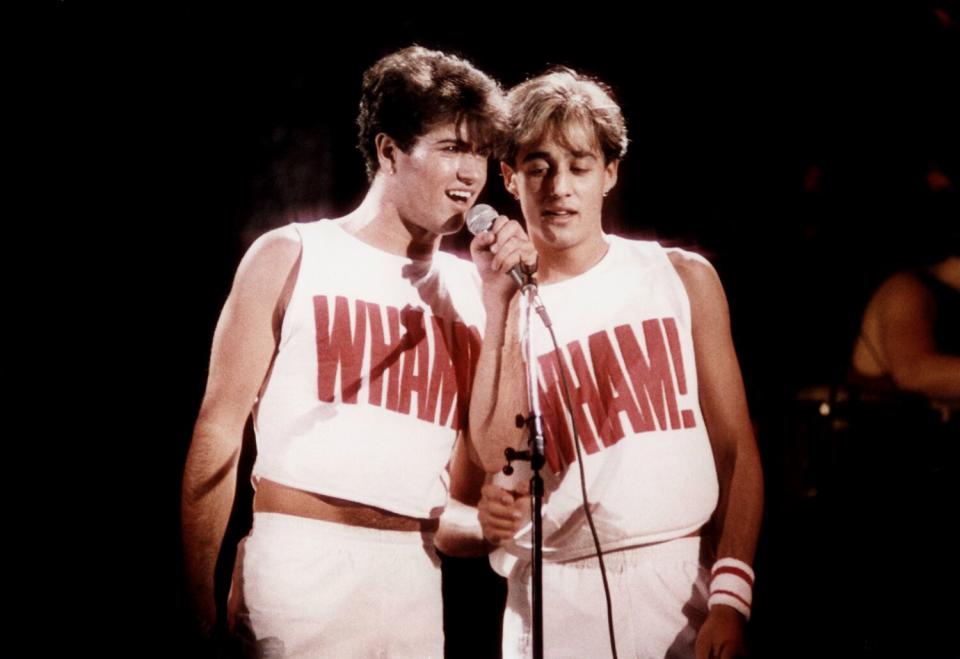
You and George co-wrote some of the Wham! singles, but then he became the sole songwriter. He said to me, “Andrew quietly backed off. His songwriting contributions would have diluted the strength of my musical ideas.” Is that a fair description?
That’s probably fair. My songwriting had not developed the way his had. If I’d worked a little harder, I would have written a few more songs. [laughs] One of my character flaws is indolence. It became apparent very quickly that his songwriting was in a different league, and to achieve our goals, we would be best served with him writing alone. The songs he wrote for his solo career were far more self-analytical, about Yog’s personal experiences, rather than things like “I’m Your Man,” which was more general and could apply to us both. It’s about sex, which was his favorite subject. [laughs]
George genuinely cherished pop music, and I think when he was young, he thought that becoming a huge star would validate him and erase his feelings of inadequacy. He became a star and people did love him, but he still felt inadequate.
I think there are elements of truth in that. His dad, Jack, emigrated from his homeland [Cyprus]. Life wasn’t easy for him. He was a big character, a self-made man, and he put a lot of pressure on George. Yog was a sensitive young boy and wasn’t in his father’s mold. Perhaps his self-image was colored by that sense of not quite being the son that his dad wanted.
But to address your point, making himself a pop star and being loved by people didn’t make him happy. What made him happy was just being Yog at home with his friends. He had a real love/hate relationship with fame — and for the greater part, it was hate. [laughs]
Both of us were intent on achieving success. When I told my dad we’d been offered a record deal, he said, “That’s very nice, Andrew. But when are you going to get a proper job?” We needed to prove to the people around us — our parents and our teachers — that they were wrong and we were right.
George had moments or passages of great happiness through his life. His talent and his artistry were his burden as well as his gift.
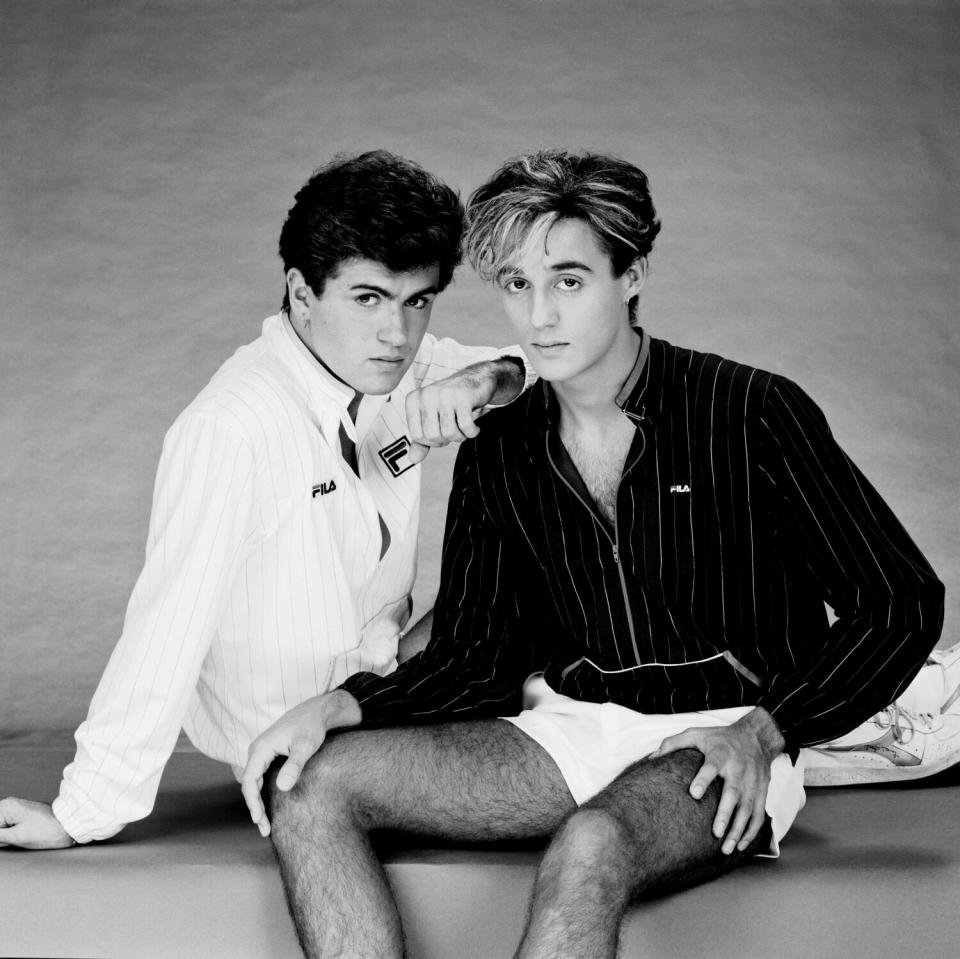
You both knew he would leave Wham! and start a solo career at some point. But when and how did he tell you he wanted to do a final, farewell concert?
I don’t remember the conversation, actually. As we achieved our goals, we came to understand that Wham! was about the exuberance and vitality of youth, and it couldn’t really develop into adulthood. Wham! couldn’t age. When he asked me to consent to him releasing “Careless Whisper” as a solo record [everywhere except the U.S.], we knew that was the first step on his solo path.
Once we’d done a stadium tour and performed in China, what’s left? He talked for some time about doing a third Wham! album. But I think he understood that we’d just be going over the same ground.
In the movie, George says you got tired of being the target of potshots. Do you find any of the jokes funny?
People made fun of us, and I expect some of the jokes were funny. But I went abroad at the end of ’85 [to Monaco] and I’ve never been a big TV watcher, so I missed a lot of it.
I was unprepared for the consequences of fame. The cult of celebrity did not exist in my family. I had a very attractive girlfriend [model Donya Fiorentino] and the press interest in the U.K. was unwelcome. The potshots and the sniping about my role in Wham! — that was water off a duck’s back. But I resented deeply the intrusion into my personal life, being chased from restaurant to restaurant. To step away from that was a welcome sort of relief.
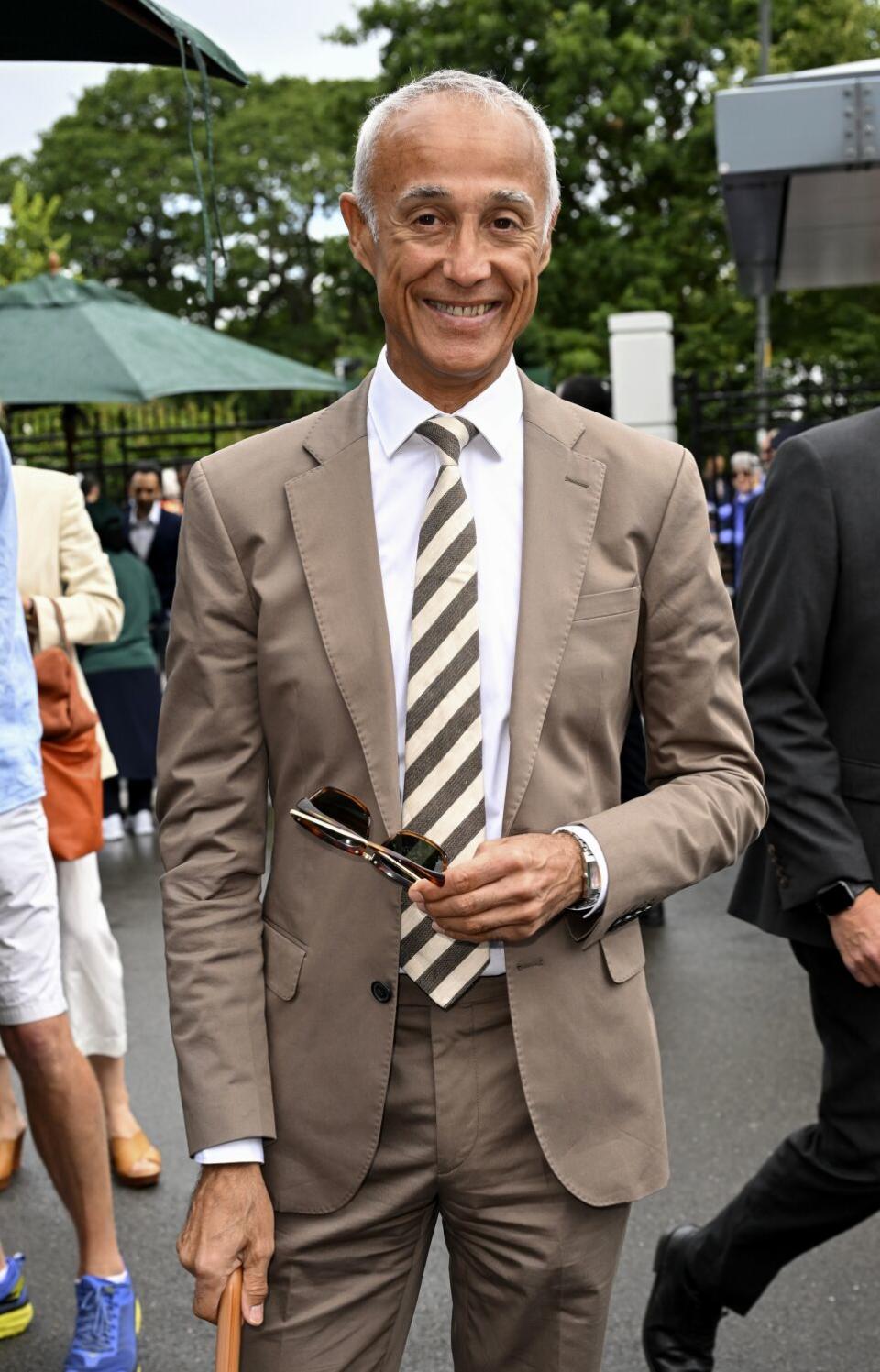
Earlier you referred to yourself as indolent. You’re back in the public eye now, but for a limited amount of time. When it’s over, what kind of life do you go back to? What keeps you busy these days?
I had a very nice country life with my ex-partner, Keren [Woodward] from Bananarama. But no, there won’t be any going back. We’ve got a few years of Wham! milestones to celebrate in one way or another. The Wham! legacy is very important for me to promote.
I know that Yog would want Wham! to be in the forefront of people’s memories. That’s going to be a large part of what I’m doing in the years to come. It’s sort of starting work again at the age of 60. It’s all a bit ass about face. Just when I thought I could be indolent, I’ve got to work.
This story originally appeared in Los Angeles Times.

